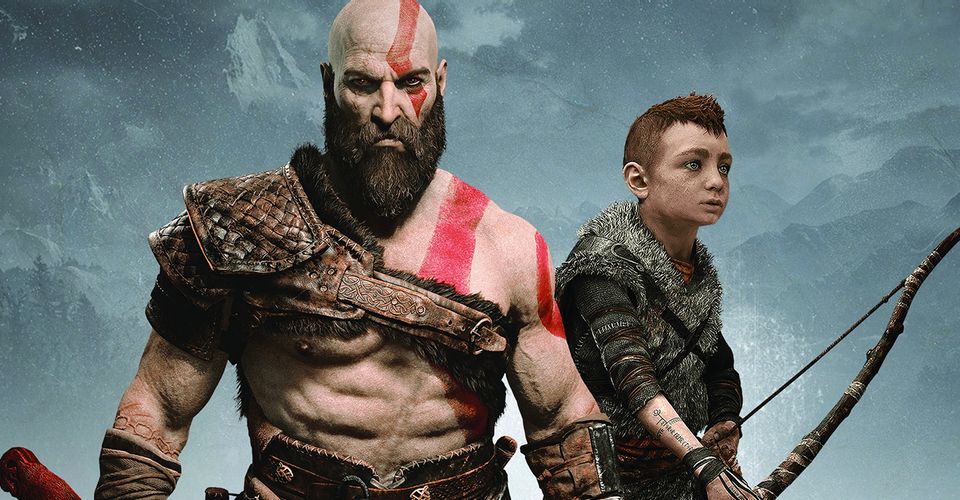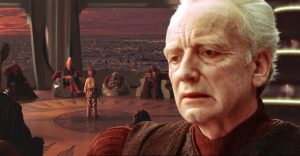God of War Ending Painting: Every Reveal & Tease About Kratos’ Future

The ending to God of War (2018) reveals a mysterious painting which portrays what awaits Kratos in his future. Throughout the game, players are able to uncover a variety of painting and tapestries which reveal backstory alongside in-game sequences. These runic filled carvings provide a visual storyline of the events that took place before and during the game itself, but the final painting hints at a sinister future.
[Warning: God of War (2018) spoilers ahead]
Kratos is the pinnacle of the God of War franchise and his face has carried over into the 2018 continuation of the series. Rather than focusing on Greek and Roman mythology, the title is centered on exploring the vast pantheon of Norse gods, worlds, and legends. Throughout the game, players follow the story of Kratos and his son Atreus as they journey to Jötunheim where they plan to scatter the ashes of Faye, Kratos’ wife and Atreus’ mother. There, the two explore a vast room filled with murals of prophecy, where many secrets are revealed. As Atreus leaves, Kratos is left alone as a red cloak is blown aside to unveil a hidden part of the mural: Kratos’ death.
Throughout God of War, it’s made clear that Faye’s prophecies have all come true, so it’s fate for Kratos to one day die in the hands of Atreus. How that will occur is unknown, but will likely be an important detail in the game’s sequel. The Jötunheim Wall of Prophecy shows Atreus holding up Kratos’ dead body as a swirl of runic letters and words pour out of the boy’s mouth. It’s possible this might be a song of mourning or a lament, perhaps even a spell of some kind. However, the runic words around Atreus reveal more information. J.L. Hilton translated the runes surrounding Atreus, spelling out: Death, Father, Mourned, and Betrayal. It’s clear that Kratos is dead, not simply wounded. But the “betrayal” portion of the mural presents a more sinister tease of what might happen to the God of War.
What GoW’s Ending May Mean For God of War 5

It’s possible that Atreus will end up killing Kratos. The “father killing sons” theme is prevalent in the God of War titles and is tied to Kratos as a character. In God of War (2018), there is a side quest which involves the murder of a bandit by his own child, a point which lingers with Atreus for a long time. In turn, Kratos later admits to the killing of his own father, Zeus. While Atreus is an overall sweet character, he has had moments of rage induced violence. Given that Kratos killed his family in Greece through rage, such impulsiveness seems to run in the family.
In the scope of Norse mythology, Ragnarök stands as the central apocalyptic event. At the end of the game, it’s revealed that Fimbulwinter is coming, the dreaded three year winter before Ragnarök unfolds. An additional post-credits scene shows the arrival of Thor standing outside Kratos’ home surrounded by snow and ice. Should this be a signifier of Fimbulwinter, it’s possible the next game will be picking up right at the start Ragnarök. Perhaps Kratos faces his end there.
Kratos is notorious for defying his fate, so whether he will truly stay dead as the Jötunheim Wall of Prophecy seemingly states is up in the air. Given the open-ended cliffhanger that God of War (2018)ended on, the upcoming game will almost certainly continue with the Norse pantheon, carrying over several years after the arrival of Thor. What lays in store for Kratos and Atreus is largely unknown, but if the mural in Jötunheim is true, then Kratos may be facing his permanent end very soon.
Source: J.L. Hilton
About The Author

















